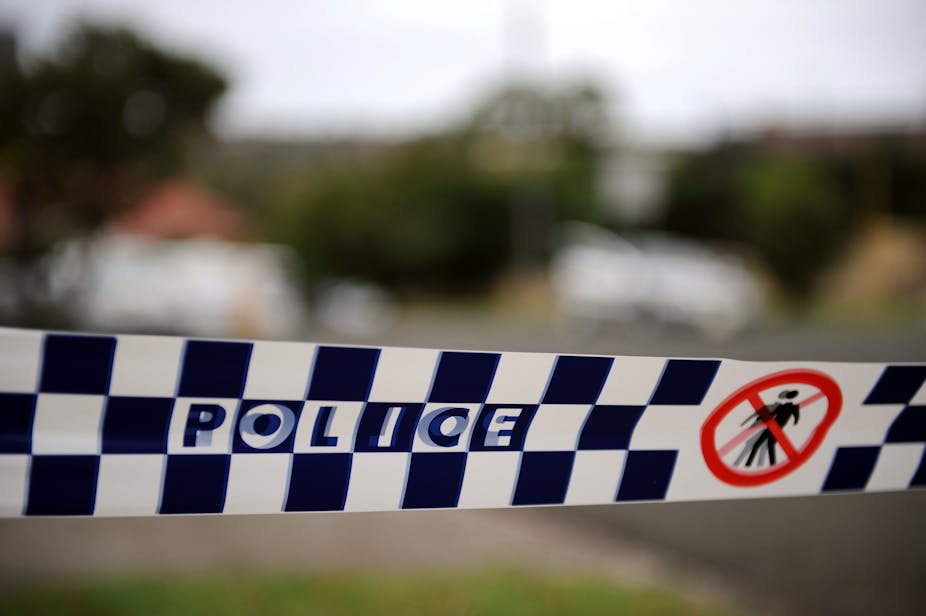Queensland has a new Labor minority government, led by Annastacia Palaszczuk, after the shock defeat of the Liberal National Party. Labor’s pre-election promises were “modest”, leaving many now wondering about the government’s policy agenda. Our experts examine some of the big challenges facing Australia’s third state.
Dear Premier Palaszczuk,
The areas of law and justice are both difficult and contentious. As one former state attorney-general has described, governments often feel pressured to respond to media by enacting “tougher” law and order policies – even if being tough doesn’t always cut crime or help the victims of it.
As you move into government there are three key messages to keep in mind: make law and justice policy decisions based on evidence, not populism; be open to public scrutiny on any changes you propose; and keep testing what works and what doesn’t.
Most of these recommendations don’t only apply to Queensland, but to other states and territories too.
The crimes to watch
Focus on policies that work to prevent or reduce real crime problems. Don’t be distracted by populist issues, pet projects or knee-jerk reactions. Instead, look to the substantial evidence base on what does and doesn’t work to reduce real offending.
Keep in mind that overall crime rates in Queensland, like the rest of Australia, have been steadily declining for about the last 15 years.
But while overall crime rates are decreasing, some specific types of crime are increasing, or causing significant community harm. This is where resources should be concentrated.
Switch the focus from issues that do not significantly impact on crime rates, such as one-punch laws or bikies, to those that do, such as domestic and alcohol-fuelled violence, mental health issues and deprived communities.
A blueprint for action
You have a ready-made blueprint for evidence-based crime policy in last year’s parliamentary legal affairs and community safety committee report on reducing criminal activity in Queensland. It made 88 recommendations, including to:
- establish an independent agency to collate, analyse and interpret crime data and develop evidence-based policy
- reverse the recent trend to increased imprisonment, especially for those on remand and those convicted of relatively minor offences
- invest in prisoner education, rehabilitation and post-release support to reduce re-offending
- trial and properly evaluate a justice re-investment approach, diverting money from jails to community-based prevention measures
- invest in evidence-based early intervention programs to reduce offending by young people, including social support for at-risk youth
- review decisions to abolish or reduce diversionary programs including drug, Indigenous and special circumstances courts
- tackle the underlying issues leading to over-representation of Indigenous people in the criminal justice system, such as the lack of educational and social services in some communities.
Domestic and family violence
The committee made more than 40 recommendations aimed at reducing the impact of domestic and sexual violence.
The special taskforce on domestic and family violence in Queensland, chaired by Dame Quentin Bryce, will hand its report to your government at the end of this month.
Those findings – and your government’s response to them – will be closely watched not only here in Queensland but nationally, amid growing community concern about the deadly toll of family violence.
Consultation, collaboration and evaluation
Your government should also focus on rebuilding engagement and trust with the institutions of law and justice, and with the community.
Good relationships with the judiciary, legal profession, police and correctional staff are essential to an effective criminal justice system. Proposed changes to law and policy are strengthened – not threatened – by scrutiny and debate. Re-introduce or respect parliamentary and other processes that facilitate this, and welcome input from the community and relevant experts.
Your government should also maintain and build the evaluation, research and policy capacity of your key agencies. Cutting capacity in these areas is a false economy, resulting in poor policy and inappropriate targeting of operational staff and resources.
Build partnerships with the private sector and with universities to assist in developing the evidence base essential for good policy. Support your public servants to provide independent and experienced insights on difficult problems.
Listening to that kind of frank and fearless advice before you bring in new policies is the best way to avoid a public backlash in the long run.
Some people will urge you to simply tackle “law and order” problems. Aiming for law and justice for all citizens is, in many ways, a much tougher ask for a new government.
But if your goal is a safer Queensland, law and justice is the best way to achieve it – and that means starting with the evidence before you, and using it to build a case for change.
Read more of The Conversation’s Queensland election 2015 coverage, and more ‘Dear Premier’ policy articles at the Federal Future blog.

